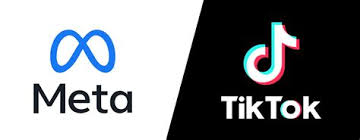The European Union (EU) has accused social media giants Meta and TikTok of breaching its strict digital content and transparency rules under the Digital Services Act (DSA). The allegations mark one of the bloc’s most aggressive enforcement actions yet against major online platforms.
According to the European Commission, both companies failed to take sufficient measures to protect users—especially minors—from harmful and misleading content. Additionally, they are accused of not being transparent enough about their content moderation practices and advertising systems.
In a statement released on Thursday, EU Commissioner for the Internal Market, Thierry Breton, said, “We will not allow online platforms to exploit our citizens’ data or expose children to harmful material. Compliance with the DSA is not optional; it is a legal obligation.”
Furthermore, the Commission claims that Meta, the parent company of Facebook and Instagram, allowed political ads and disinformation to circulate widely during recent European elections. Similarly, TikTok allegedly failed to provide adequate safeguards to prevent addictive or manipulative content from targeting young users.
Both companies now face potential fines that could reach up to 6 percent of their global annual revenue if found guilty of the violations. The EU’s probe will also assess whether the firms’ algorithms and recommendation systems contribute to harmful digital behaviors or amplify misinformation.
Meanwhile, representatives of Meta and TikTok have denied any wrongdoing. A Meta spokesperson stated that the company “has robust systems in place to comply with the DSA” and is “working closely with EU authorities.” TikTok, on the other hand, said it remains committed to “building a safe and transparent platform experience for users across Europe.”
As the investigations continue, this case underscores the EU’s growing resolve to hold big tech companies accountable for digital safety and transparency. Moreover, it signals a broader shift toward stricter global regulation of online platforms—a move that could reshape the digital landscape for years to come.





















